From Dhaka to Kunming for a cure

When 23-year-old Jannatul Nayeem boarded a flight from Dhaka to Kunming, he carried more than a suitcase. Packed alongside his clothes was the weight of a stubborn spinal disc problem -- and months of frustration over elusive diagnoses and dead ends.
In Bangladesh, he had knocked on many doors. Doctors examined him, prescribed medicines, and sent him for tests, but none could give him clarity on his condition or a way out. His hopes of seeking treatment in India collapsed when his visa application was rejected.
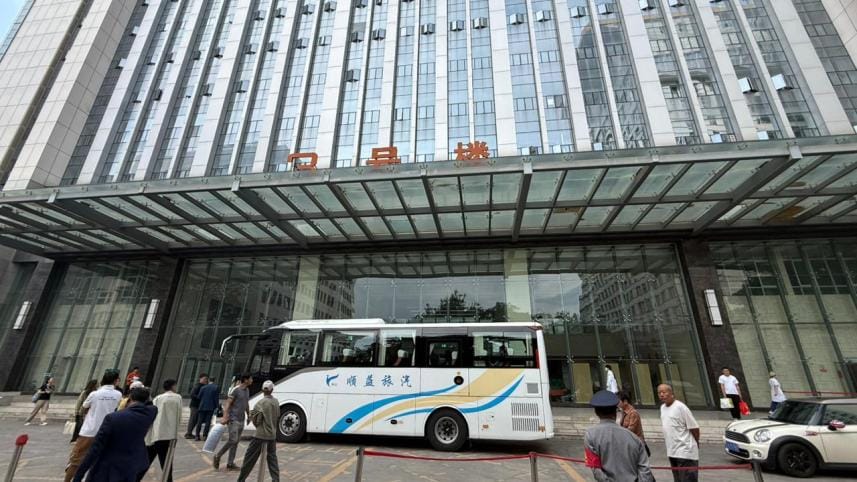
That's when he turned his sights to China -- drawn by its reputation for advanced medical facilities and highly skilled professionals.
Accompanied by his brother, Omar Faruk Rashedin, Nayeem arrived in Kunming, the capital of China's Yunnan province, and was admitted to Kunming Tongren Hospital. Initial tests paved the way for a critical operation that, according to his brother, has already improved his condition.
"Now he is doing well," Rashedin told a group of Bangladeshi journalists on August 8 at the hospital.
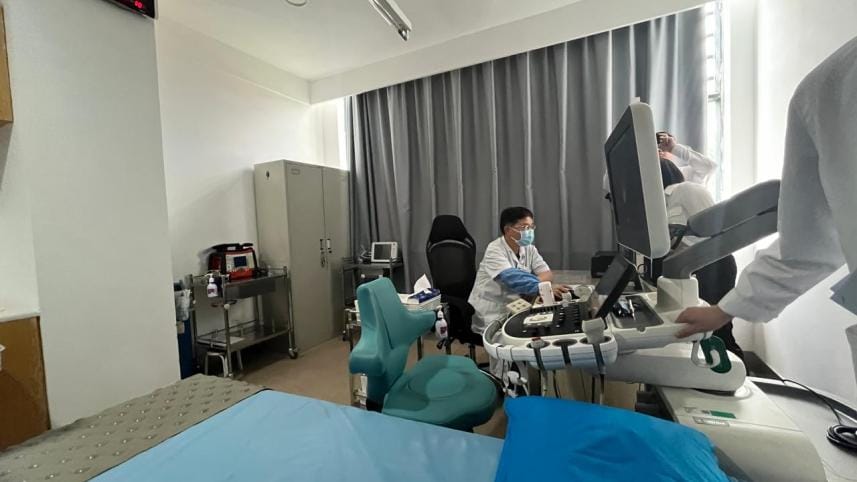
He said the total cost -- about 60,000 yuan -- was comparable to treatment expenses in upscale private hospitals in Bangladesh, but the quality of care was on another level.
"The healthcare service here is outstanding," he said. "Even the doctor personally cleaned the bed and did the dressing. Nurses checked on the patient around ten times during the night. There's no shortage of sincerity from the doctors and nurses."

During their visit, organised at the invitation of the Chinese government, the journalists observed how Tongren Hospital is equipped with international-standard diagnostic and laboratory tools -- technology that ensures accurate diagnoses and effective treatment.
Hospital officials presented case studies of Bangladeshi patients treated for critical illnesses and intellectual disabilities.
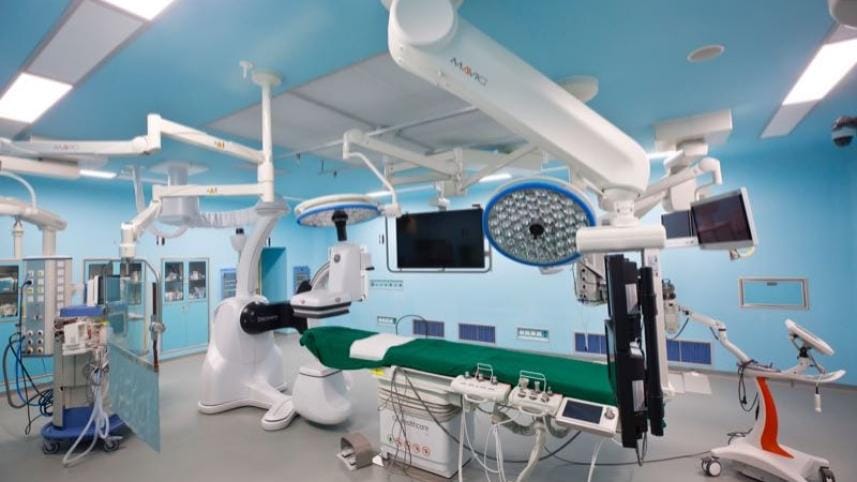
Shen Ling, vice president of Tongren Hospital, said, "For international patients, we have established an efficient, rigorous diagnosis and treatment process, supported by a mature multidisciplinary team to ensure safety and quality. These strengths have created a solid foundation for receiving patients from abroad, including Bangladesh."
On August 7, the delegation visited the First Affiliated Hospital of Kunming Medical University, a government-run facility known for its expertise in treating a wide range of illnesses. Clean, organised, and well-maintained, it provides an environment designed to support both patient recovery and staff efficiency.

The following day, the group toured Kunming Eye Hospital, where they observed state-of-the-art ophthalmic technologies, including laser surgery, advanced diagnostic imaging, and comprehensive eye care.
Hospital authorities said they are working to make the process easier for Bangladeshi patients by simplifying admission, improving communication, and offering dedicated international patient services.
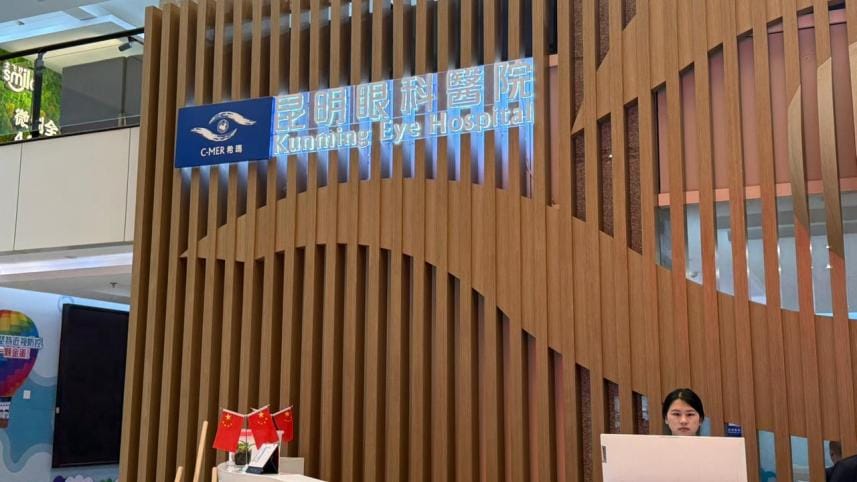
Zhang Min, CEO of Kunming Eye Hospital, said Bangladeshi patients would find treatment there both affordable and accessible. "We receive hundreds of patients every year from countries like India and Russia, and we welcome Bangladeshi patients as well."
Before initiating treatment, expert teams thoroughly explain the patient's condition, proposed treatment plan, and expected prognosis. Throughout the process, patients' rights to make informed decisions and choose their preferred treatment methods are fully respected.
Authorities said Bangladeshi patients have been coming to Kunming for a range of treatments, including cancer care, spinal injury rehabilitation, cardiology procedures, and life-changing surgeries.
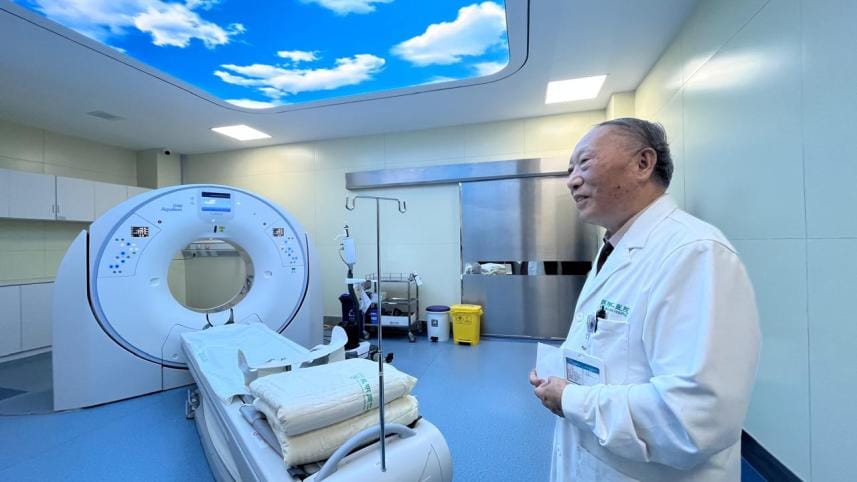
GROWING DEMAND FOR OVERSEAS TREATMENT
Due to mismanagement, manpower shortages, poor healthcare services, staff negligence, and weak monitoring in Bangladesh, many patients are compelled to seek treatment abroad. India remains the top destination, followed by Thailand, Singapore, and Malaysia, for high-end medical care.
According to Bangladesh Bank Governor Ahsan H Mansur, Bangladeshis spend over $5 billion annually on medical treatment abroad, with India and Thailand being the primary destinations. He shared this at a programme in Dhaka last December.
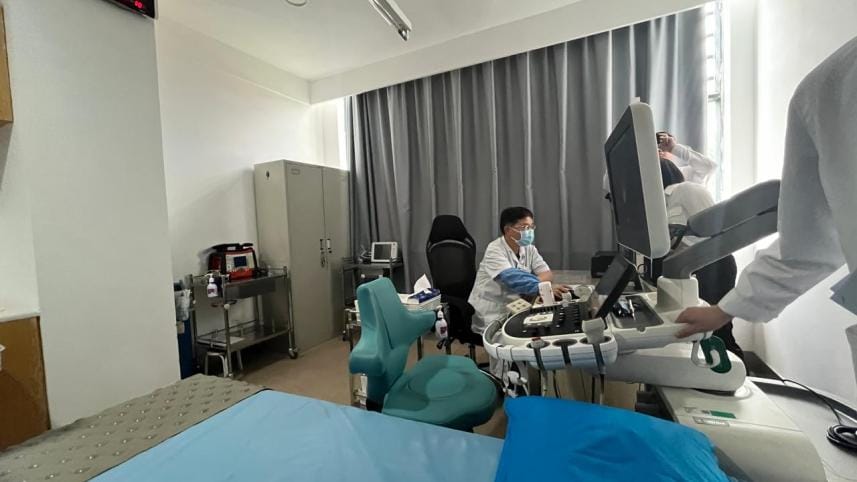
Chinese Ambassador to Bangladesh Yao Wen said 2025 marks the 50th anniversary of China–Bangladesh diplomatic relations, as well as the designated year of China–Bangladesh people-to-people exchanges.
"This year, healthcare cooperation has emerged as a standout achievement in China–Bangladesh relations," he said.
The first batch of Bangladeshi patients travelled to China for treatment in March. Since then, about 600 individuals have gone for medical care.
"The figure is not very large, but it represents a significant beginning. It is predicted that by the end of this year, we may see 4,000 to 5,000 Bangladeshi patients travelling to China for treatment," he added.
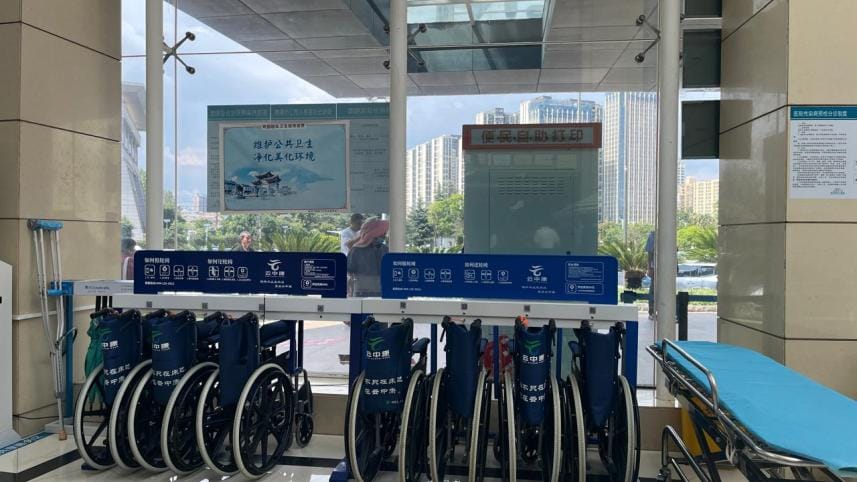
YUNNAN'S STRATEGIC ADVANTAGE
Attendants of patients, medical tourism operators, and Bangladeshi residents in Kunming said Yunnan could be a promising option for Bangladeshi patients, given its proximity -- just a two-hour flight from Dhaka.
Wang Jiankun, deputy director of the Health Commission of Yunnan Province, said the province has 29,678 medical and health institutions, including 1,319 hospitals, 122 tertiary-level hospitals, and 472 secondary-level hospitals, with a total of 370,000 hospital beds.
"We have selected hospitals that offer top-tier treatment and cutting-edge techniques to provide international healthcare services for Bangladeshi citizens," he said.
Treatment costs in Kunming are lower than in Thailand and only about 10 percent higher than in premium hospitals in Delhi.
For example, a blood sugar test in Bangladesh costs at least Tk 200, while in Kunming it is less than Tk 100. Cardiac treatment in Dhaka typically costs Tk 3–4 lakh, whereas in China it costs around $1,000. Patients are required to deposit 10,000 RMB at the start of treatment, with any unused balance refunded.
Rashedul Hassan, a dentist and country director of the Turkish Healthcare Travel Council, said consultation fees at government hospitals in China range from Tk 200 to 300.
Both MM Masumuzzaman, CEO of Seok Healthcare, and Rashedul confirmed that hospital costs in Kunming are lower than in Thailand.
Lu Jiang, assistant to the president of Fuwai Yunnan Hospital, said medical services in China are comparable to those in Thailand.
"But the cost, as we understand it, may be one-fourth of the price in Thailand, and lower than in Malaysia," he said.
CHALLENGES AND RESPONSES
Despite the promising prospects, several challenges remain.
Attendants, medical tourism operators, and Bangladeshi residents in Kunming pointed to the lengthy visa process, high airfare, and limited flights between Bangladesh and Kunming as key barriers.
Omar Faruk Rashedin said language barriers are a major obstacle. Interpreters are scarce and costly -- 500 yuan (around Tk 9,000) for a full day, and 200–300 yuan for subsequent sessions. There are also limited food options catering to Bangladeshi preferences.
In response, Wang Jiankun said that hospitals have begun inviting Bangladeshi students to provide language support.
On food facilities, authorities at the First Affiliated Hospital of Kunming Medical University and Tongren Hospital said Muslim restaurants are available on-site.
Attendants also said the exclusive use of Chinese in medical reports and billing creates confusion. Financial transactions are another hurdle, as credit cards and insurance are often rejected.
Sagor Hossain from Chattogram, who brought his mother -- a cancer patient -- for treatment, highlighted the urgent need for English-language documentation, as Bangladeshi doctors cannot read Chinese.
Lu Jiang, vice president of Fuwai Yunnan Hospital, said they can provide English-language discharge summaries and admission papers.
Wang Jiankun said they have coordinated with some banks to improve the payment system. Guo Weiwei, vice president of the First People's Hospital of Yunnan Province, said they accept Visa credit cards.
Chinese Ambassador Yao Wen said the embassy has introduced special facilitation measures for medical treatment visits, including green channel services and a streamlined process.
Patients with an invitation certificate from a Chinese hospital can now get a visa within a single working day.
Chief Adviser's Deputy Press Secretary Azad Majmuder said the interim government is exploring alternative destinations for advanced medical treatment at reasonable costs and within a short timeframe.
Efforts are underway to launch direct flights between Kunming and Chattogram, as well as more flights on the Dhaka–Kunming route.
"We hope that by the end of this year, the Chattogram–Kunming flight will be operational, making travel easier for patients and businesspeople," he said in Kunming on August 8.

 For all latest news, follow The Daily Star's Google News channel.
For all latest news, follow The Daily Star's Google News channel.
Comments